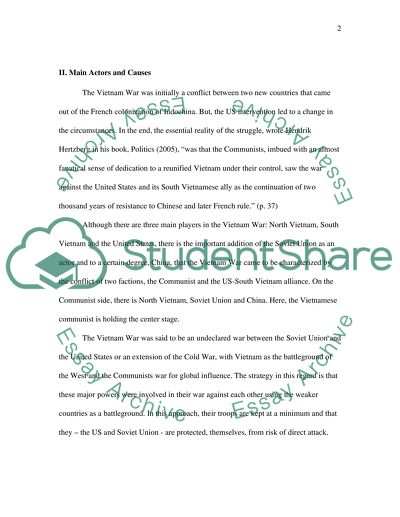Cite this document
(“The Vietnam War Did war prove to be a successful means of achieving Essay”, n.d.)
The Vietnam War Did war prove to be a successful means of achieving Essay. Retrieved from https://studentshare.org/miscellaneous/1549314-the-vietnam-war-did-war-prove-to-be-a-successful-means-of-achieving-political-objective-examine-this-from-both-the-us-and-north-vietnamese-perspectives
The Vietnam War Did war prove to be a successful means of achieving Essay. Retrieved from https://studentshare.org/miscellaneous/1549314-the-vietnam-war-did-war-prove-to-be-a-successful-means-of-achieving-political-objective-examine-this-from-both-the-us-and-north-vietnamese-perspectives
(The Vietnam War Did War Prove to Be a Successful Means of Achieving Essay)
The Vietnam War Did War Prove to Be a Successful Means of Achieving Essay. https://studentshare.org/miscellaneous/1549314-the-vietnam-war-did-war-prove-to-be-a-successful-means-of-achieving-political-objective-examine-this-from-both-the-us-and-north-vietnamese-perspectives.
The Vietnam War Did War Prove to Be a Successful Means of Achieving Essay. https://studentshare.org/miscellaneous/1549314-the-vietnam-war-did-war-prove-to-be-a-successful-means-of-achieving-political-objective-examine-this-from-both-the-us-and-north-vietnamese-perspectives.
“The Vietnam War Did War Prove to Be a Successful Means of Achieving Essay”, n.d. https://studentshare.org/miscellaneous/1549314-the-vietnam-war-did-war-prove-to-be-a-successful-means-of-achieving-political-objective-examine-this-from-both-the-us-and-north-vietnamese-perspectives.


